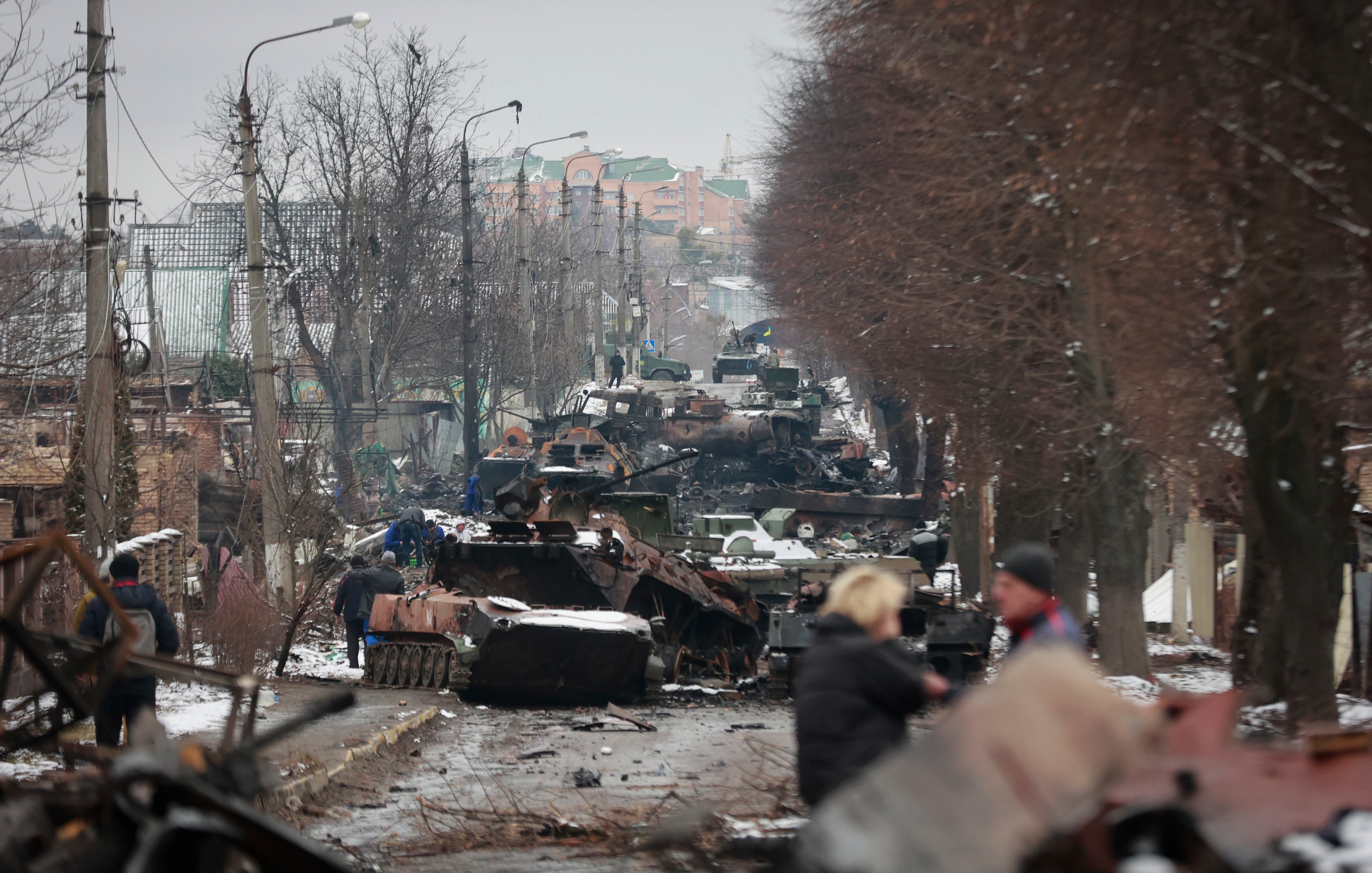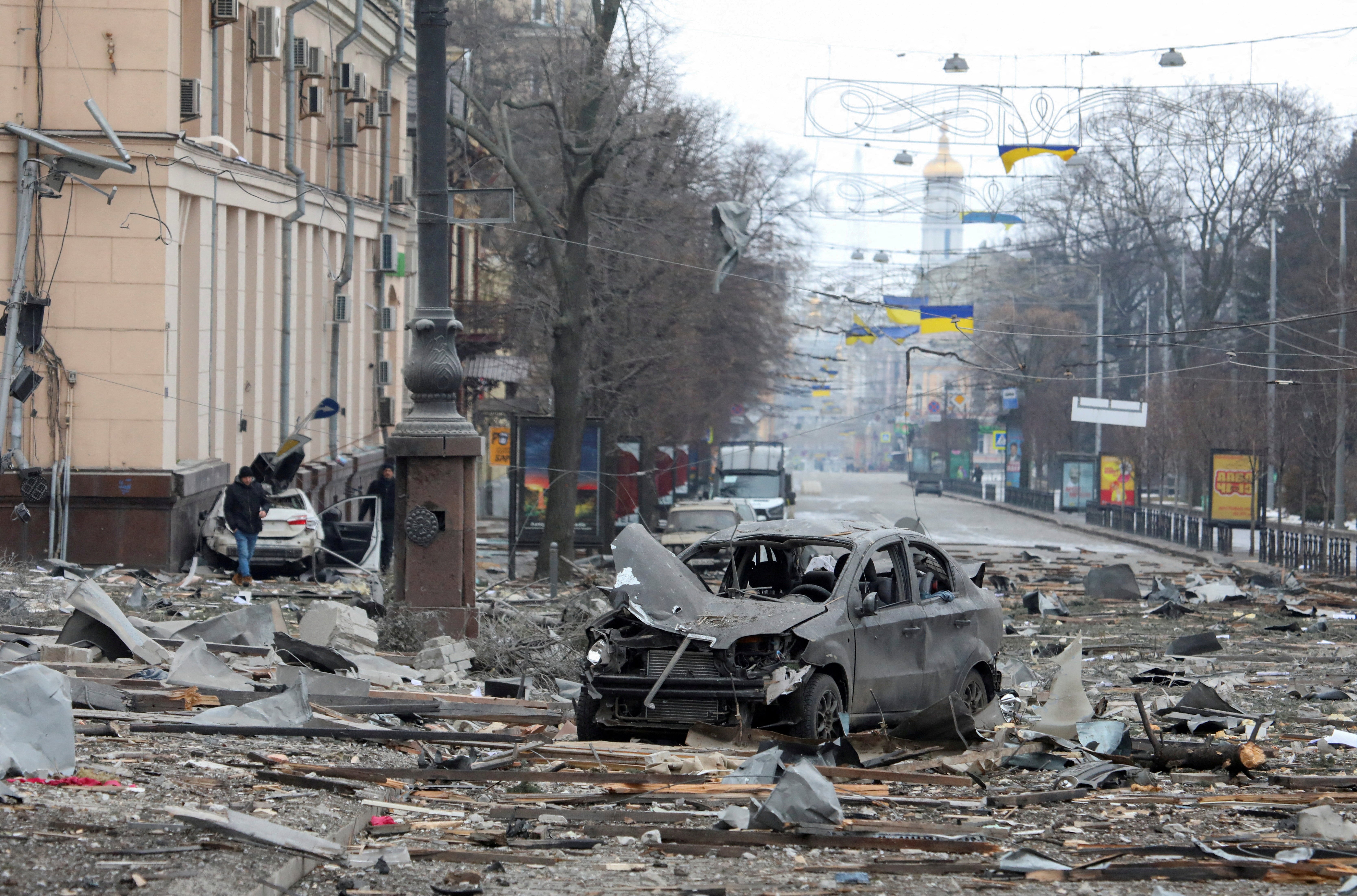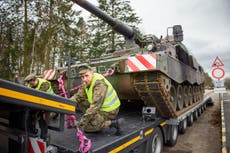Why Biden is opposed to a ‘no-fly zone’ over Ukraine
Avoiding World War III is the short answer. How a no-fly zone could end there is less complex than it appears
The United States has enforced three no-fly zones in the brief history of the military tactic; in Libya, Iraq and Bosnia.
Ukraine won’t be the fourth if Joe Biden stands his ground. The president has so far refused direct pleas from Volodymyr Zelensky, and mounting political pressure from retired generals and soon to retire Congressmen, to "control the skies".
Despite the growing chorus, the US has gone to lengths to signal a clear and present lack of danger to Russian aircraft from the Nato alliance.
The intended audience is Vladimir Putin, whose nuclear arsenal poses a greater threat than either Muammar Gaddafi or Saddam Hussein, with or without his reputed WMDs.
White House press secretary Jen Psaki has spent the past three days ensuring the world, but specifically Putin, that the president has no interest in supporting a no-fly zone over Ukraine.
While the reasons are practical, Psaki made the case for the emotional. When asked what the US is doing to reduce the threat of nuclear war in light of Putin’s escalation, her first answer was about the US’s words rather than Russia’s actions.
"We have not changed our own posture, what we are trying to do is reduce the tension, take the tenor of the rhetoric down," she said during Monday’s White House briefing.
"The president has been very clear that he is not intending to send US troops to fight a war with Russia," she added. "And I think what’s important to note here is that is essentially what this would be a step toward. Because a no-fly zone would require implementation."
By "implementation", she means military intervention. The opposite tampering down rhetoric would be to talk up the possibility of a no-fly zone over Ukraine, which would, in effect, become a de facto declaration of war against Russia.
Regardless, Zelensky has pressed the case. He told Axios through a spokesman that Ukraine "can beat the aggressor" if Biden and his western allies "do their part" and impose a no-fly zone over "significant parts" of the country.
Psaki said that would require the US military to, essentially, start shooting down Russian planes.
"That is definitely escalatory," Psaki said. "That would potentially put us into a place where we are in a military conflict with Russia."

But not just any conflict. A no-fly zone "would mean [the start of] World War III", warned US senator Marco Rubio.
Republican congressman Adam Kinzinger is up for it, to "give the heroic Ukrainians a fair fight," he tweeted. He has an ally in retired US Air Force General Philip Breedlove, who was Nato Supreme Allied Commander Europe from 2013 to 2016.
Breedlove called for a no-fly zone in response to Putin’s aggression, but is under no illusion that it would remain within the shifting borders of Ukraine.
"The reality of a no-fly zone is, it is an act of war," Breedlove wrote in Foreign Policy. "You don’t just say, ‘That’s a no fly zone.’ You have to enforce a no-fly zone, which means you have to be willing to use force against those who break the no-fly zone."
On top of that, if the US or Nato are going to enforce a no-fly zone in Ukraine, they have to take out all the ground-based weapons within the firing range of allied aircraft.
"So that means bombing enemy radars and missile systems on the other side of the border. And you know what that means, right?"
It means bombing Russia and its ally, Belarus.

"That is tantamount to war. So if we’re going to declare a no-fly zone, we have to take down the enemy’s capability to fire into and affect our no-fly zone. And few understand that," he said.
"And that’s why, if you talk about a no-fly zone, it is a very sober decision because many in the world would interpret it as an act of war".
"Many", in this case, means Putin.
It’s why Nato allies are in lockstep with their messaging discipline against a no-fly zone.
Pentagon press secretary John Kirby says Biden “has been very clear that U.S. troops will not be fighting in Ukraine,” and that any no-fly zone would be a Nato decision. Nato Secretary-General Jens Stoltenberg told MSNBC on Monday they have no intentions of moving into Ukraine either on the ground "or in the airspace".
British Defence Secretary Ben Wallace flatly rejected that idea of what would be an effective Nato declaration of war, which would put “British fighter jets directly against Russian fighter jets”.
The US ambassador to the UN, Linda Thomas-Greenfield, told CNN on Sunday American troops won’t be put in danger, "that means we’re not going to put American troops in the air as well".
For all the rhetoric of restraint, Putin continues to accuse Nato of making "aggressive statements" and has placed his country’s nuclear weapons on an increased readiness to launch – what the Russian defence minister, Sergey Shoigu, called “special regime of combat duty”,
Putin said in a meeting of top officials shown Sunday on state TV that the move, which means the country’s nuclear weapons are prepared for increased readiness to launch, was in response to Nato powers’ making what he called “aggressive statements.”
Mr Shoigu, and the chief of the military’s general staff have been ordered to put the nuclear deterrent forces in what was described as a “special regime of combat duty.”
The increasing pressure to implement a no-fly zone, and the attempts to deflate that momentum in the face of Russia’s nuclear escalation, is based on the presupposition that a no-fly zone is a slam dunk means to the end of the current war in Ukraine.
The US’s experience, however, is debatable, according to a 2013 Congressional Research Service report on no-fly zones.
"Recent operational experiences suggest that the establishment of a no-fly zone, in itself, is unlikely to achieve the full set of military objectives," the report said. "Such as protecting a civilian population, let alone the grand strategic objectives, such as restoring or removing a regime."
When Psaki was asked if Biden would support a no-fly zone against Russian aircraft over the United States, if not Ukraine, she noted that many American carriers also fly over Russia.
"No option is off the table," she added.
Join our commenting forum
Join thought-provoking conversations, follow other Independent readers and see their replies
Comments


Bookmark popover
Removed from bookmarks